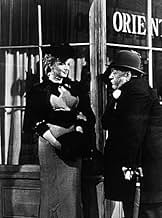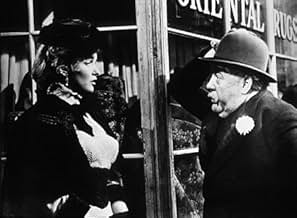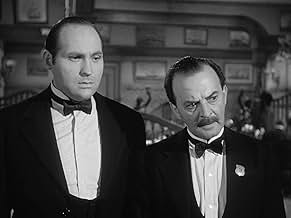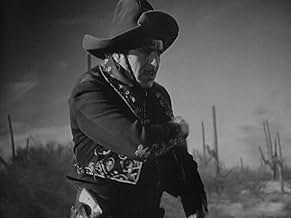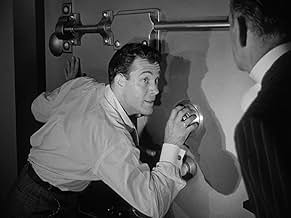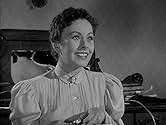VALUTAZIONE IMDb
7,2/10
3248
LA TUA VALUTAZIONE
John Steinbeck introduce cinque delle storie più celebri di O. Henry dal suo periodo di New York dal 1902 al 1910 in questo film antologico.John Steinbeck introduce cinque delle storie più celebri di O. Henry dal suo periodo di New York dal 1902 al 1910 in questo film antologico.John Steinbeck introduce cinque delle storie più celebri di O. Henry dal suo periodo di New York dal 1902 al 1910 in questo film antologico.
Joyce Mackenzie
- Hazel Woods (segment "The Clarion Call")
- (scene tagliate)
- (as Joyce MacKenzie)
Recensioni in evidenza
An homage to O. Henry, featuring five of his short stories, an interesting collection of actors and directors, and narrated by John Steinbeck. It starts strong, with the first story featuring Charles Laughton in the role of an erudite tramp and a brief appearance from Marilyn Monroe, the second with a fantastic performance from Richard Widmark, and some nice visuals in the third, which was directed by Jean Negulesco. O. Henry's stories have bits of irony, humor, and little twists at the end, and are entertaining in a gentle, quaint kind of way. There is an unevenness to how well they translated to the screen, especially in the fourth story, directed by Howard Hawks, but I was entertained, and touched by O. Henry's humanism. I also loved seeing Steinbeck in his only film appearance.
Saw this with a childhood friend of mine in the 50's on TV when we were 'sneaking' staying up very late. When it was done, we looked at each other, both having been touched deeply, though we couldn't have described how. Ever after, it has been one of our 'special' memories -- one of us says "remember that movie?" and the other understands perfectly! That's what movies should do! Did anyone else have that experience on first watching it? I remember being very affected by Hitchcock's Saboteur, also, after watching it late one night as a kid. It stirred the same response that later made me a 'movie fan' -- that magical sense of someone (the director) saying something to you in a way that seemed to make life 'bigger' than it had been before.
Although known for his surprise endings, the endings of the five tales told here are not all that surprising. The "The Cop and the Anthem" (Rating 6 of 10) is a bit heavy-handed and contrived. In "The Clarion Call" (Rating 7), Widmark not only reunites with "Kiss of Death" director Hathaway but seems to be (over)playing his role from the earlier film. "The Last Leaf" (Rating 8) is touching and well-acted, particularly by Peters. The much-maligned "The Ransom of the Red Chief" (Rating 8) is the only comedy here and is quite amusing. O. Henry's most famous story, "The Gift of the Magi" (Rating 6), is rather unsatisfying. All in all, a mixed bag but well worth watching.
This is one of my favorite old movies. You can't go wrong with this one--if you ever have a chance to see it! I don't recall enough details to improve upon what's been said by other reviewers, but each part was engrossing (though I agree that "The Ransom of Red Chief" was the weakest dramatization of a great short story of the bunch), especially "The Gift of the Magi" and "The Last Leaf." Lingers in the memory long after you see it.
One cannot really make a pastiche movie like this hang together as a coherent whole, but this oddity is interesting for the contributions of the high-powered cast: standing out are Charles Laughton, a disturbingly nasty Richard Widmark, Anne Baxter, and the drily comic Fred Allen, of whom we don't have enough of a film record. However, Oscar Levant's acting skills are really nonexistent; he should have stuck to his career as a musician and professional neurotic. Look for Marilyn Monroe in a cameo in "The Cop & the Anthem".
Lo sapevi?
- QuizJohn Steinbeck opens an O. Henry volume at the start of each segment, and the viewers are shown the first one or two paragraphs of the upcoming story's first page. However, only the introductions to "The Ransom of Red Chief" and "The Gift of the Magi" show exactly what O. Henry wrote at the start of that tale. What is shown prior to the other three yarns is similar to, but not exactly, O. Henry's actual opening words.
- BlooperIn the first segment, as the man who had the umbrella runs off, a shadow of the camera can be seen on Horace's back.
- Citazioni
Soapy (segment "The Cop and the Anthem"): It may interest to you to know, my good man, that I and the minutest coin of the realm are total strangers.
Waiter (segment "The Cop and the Anthem"): How's that?
Soapy (segment "The Cop and the Anthem"): I said I was broke!
- Versioni alternativeThe "Ransom of Red Chief" segment was deleted after the film's initial engagements, then restored in the television prints.
- ConnessioniFeatured in Marilyn (1963)
- Colonne sonoreBringing in the Sheaves
(1880) (uncredited)
Music by George A. Minor
Lyrics by Knowles Shaw
Played and sung by The Bowery Mission Band
I più visti
Accedi per valutare e creare un elenco di titoli salvati per ottenere consigli personalizzati
Dettagli
- Tempo di esecuzione
- 1h 57min(117 min)
- Colore
- Proporzioni
- 1.37 : 1
Contribuisci a questa pagina
Suggerisci una modifica o aggiungi i contenuti mancanti


